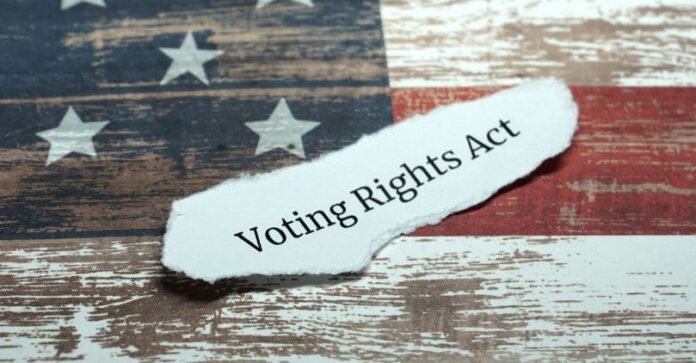
By Stacy M. Brown, NNPA Newswire Senior National Correspondent
The U.S. Supreme Court has permitted redrawing the Louisiana congressional map, paving the way for adding another majority-Black district.
The justices have reversed their initial plans to hear the case directly and lifted the hold placed on a lower court’s order regarding the need for a revamped redistricting regime.
Notably, there was no dissent among the justices.
This move by the Supreme Court follows a recent ruling made earlier this month regarding Alabama’s congressional maps.
The ruling upheld the historical approach of courts when dealing with the redistricting provisions in the Voting Rights Act, a historic civil rights law that Black voters are utilizing to challenge the Louisiana congressional plan.
The lower court proceedings, which the conservative majority had put on hold in June of last year, will now resume because of this new order.
At that time, the 5th U.S. Circuit Court of Appeals had been preparing for an expedited review of a judge’s ruling that suggested the 5-1 congressional plan likely violated the Voting Rights Act.
U.S. District Judge Shelly Dick, who presided over the case, had been considering a remedial congressional plan after Louisiana lawmakers refused to pass a plan that included a second majority-Black district.
The Supreme Court clarified on Monday that their latest decision “will allow the matter to proceed before the Court of Appeals for the Fifth Circuit for review in the ordinary course and in advance of the 2024 congressional elections in Louisiana.”
A congressional map that the Republican legislature had passed over Democratic Governor John Bel Edwards’ veto last year led to the lawsuit against Louisiana state officials.
The map, which only designated one out of six districts as majority Black, came under scrutiny considering the 2020 census revealed that 33% of the state’s population is Black.
Over a year ago, Judge Shelly Dick ordered the map redrawn to include a second Black-majority district, concluding that the Republicans’ map likely violated the Voting Rights Act’s prohibition of racial discrimination in voting.
Judge Dick emphasized that “the evidence of Louisiana’s long and ongoing history of voting-related discrimination weighs heavily in favor of” the arguments put forward by the Louisiana State Conference of the NAACP and other challengers involved in the case.
Subsequently, Robinson v. Ardoin proceeded to the conservative-leaning 5th Circuit Court of Appeals, where a three-judge panel, including two Republican-appointed circuit judges, declined to suspend Judge Dick’s order.
The appeals court expedited a comprehensive review of the case, but those proceedings were halted last summer when Louisiana officials successfully sought intervention from the Supreme Court.
The Supreme Court then took up the case in June but paused it while deciding the challenge to the Alabama map.
Republicans representing Louisiana’s state officials argued in subsequent filings that the Louisiana case presented a “unique situation” for the Supreme Court to address unresolved legal issues with the Voting Rights Act because of the Alabama ruling in Milligan.
“Today’s decision in Milligan does not address the district court’s significant errors of law that should rightly result in reversal,” the Louisiana filing stated.
However, opponents of the state’s position countered by highlighting that the district court in the Louisiana case had determined that the 5-1 map likely violated the Voting Rights Act using the same legal test that the Supreme Court endorsed in its Alabama ruling.
With the Supreme Court’s latest decision, the ongoing debate surrounding the Louisiana congressional map’s compliance with the Voting Rights Act will proceed through the ordinary review course in the Court of Appeals for the Fifth Circuit.


